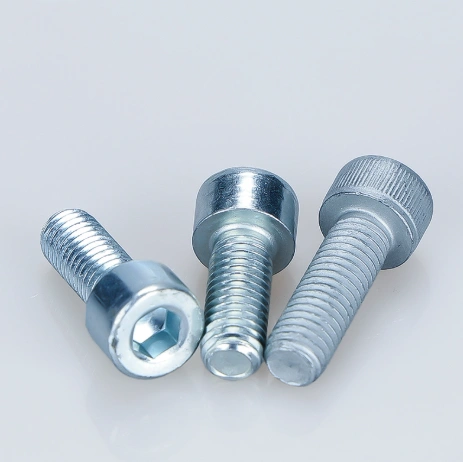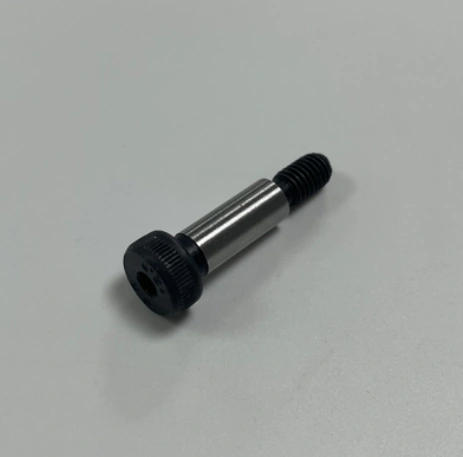caTEGORIES
Tags
What Causes Screw Corrosion and How Can You Prevent It

Posted: October 30, 2025
Categories: News
Screw corrosion is a serious issue in industries like construction and manufacturing. It weakens fasteners, causing failures that cost cash and raise safety concerns. Nobody wants a building collapsing because screws rusted.
Qewit Fasteners Co., Ltd., founded in 2004 as a British-owned company, gets this. They supply top-quality fasteners and fixings worldwide, mixing Western business know-how with Far Eastern affordability.
What Are the Main Causes of Screw Corrosion?
Corrosion doesn’t just pop up. It creeps in through daily factors that harm metal. Catching these early saves trouble later.
Environmental Exposure
Rain, salt, and chemicals start rust. Screws in wet or salty air break down fast. It’s like a bike left out all winter—rust spots everywhere.
Material Selection
Choosing the wrong metal leads to problems. Some metals rust quickly, especially if they don’t fit the job. Carbon steel’s fine indoors, but outdoors, it needs help.
Improper Application
Bad setup causes issues. If screws touch metals that clash, or get too tight, corrosion grows. Small errors pile up.
Knowing these helps pick better fasteners. Qewit’s range, with stainless steel and coated carbon steel, handles these well. For example, their Hexagon Socket Cap Screws DIN 912 in A2-70 grade stand strong against wear.
Why Does Material Choice Matter for Corrosion Resistance?
Materials decide if a fastener lasts or fails. The right one means years of solid use. A bad one? Quick fixes needed. Qewit offers carbon steel for strength, stainless for toughness, and brass for special jobs. This lets buyers match products to tough conditions.
Stainless Steel
A2 and A4 grades work great in wet or chemical-heavy spots. They fight rust naturally because of chromium. Qewit’s Self Tapping Drilling Screws DIN 7982F use this for outdoor tasks where water’s a problem.
Brass and Copper
These handle electricity and corrosion nicely. Brass screws stay rust-free in damp areas. Copper’s good for wiring. Qewit keeps them ready for special needs.
Carbon Steel with Coatings
Plain carbon steel gets a boost from finishes. It’s strong and cheap. Coatings make it a rust-fighter. Qewit’s low-carbon bolts suit light jobs without high costs.
Moving from materials to settings, it’s clear the world around screws matters a lot. Different places need different protections.
How Does Environmental Exposure Affect Screws?
Where screws are used changes how fast they rust. Tough conditions make decay worse, turning good fasteners into weak ones. Qewit’s products, tested in real scenarios, hold up well. Their Qingdao base checks every batch for salt spray and more.
Humidity and Moisture
Wet air starts rust. It forms layers that eat metal. Poorly vented indoor spots, like basements, make it worse. Screws there need stainless steel to stay tough.
Salt Spray
Near oceans or salted roads, corrosion speeds up. Salt chews through metal fast. Qewit’s HDG finishes on Hexagon Socket Shoulder Screws ISO 7379 work well in salty areas.

Chemical Exposure
Acids, alkalis, or pollutants hit screws in factories or labs. Even cleaning sprays can hurt. Qewit’s alloyed materials stand stronger in these spots.
Environments matter, but coatings add a strong defense. They shield screws from harm.
What Role Do Coatings Play in Preventing Corrosion?
Coatings give screws extra armor, making them last longer. Qewit provides options—zinc plated, HDG, zinc flake—fit for different threats. Their custom services let buyers choose what works.
Zinc Plating
A thin zinc coat stops rust. It’s shiny and good for mild spots. Qewit’s DIN 934 Hexagon Full Nuts often use this for regular jobs.
Hot-Dipped Galvanizing (HDG)
Dipping in hot zinc makes a thick layer. It’s great for outdoor gear facing rain or snow. Qewit uses it on threaded rods and studs for tough settings.
Zinc Flake
This modern coat beats salt spray tests. It’s thin but strong, perfect for car parts. Qewit’s Hexagon Serrated Flange Nuts DIN 6923 often have it, mixing grip with protection.
Coatings help, but how screws get installed matters too. Good habits cut corrosion from the start.
How Can Proper Installation Prevent Corrosion?
Setup isn’t just tightening. It’s doing it right to avoid future trouble. Qewit’s technical support helps with torque tips and material matches. Their custom services make even special parts fit well.
Correct Torque Application
Too much twisting hurts coatings. Bare metal gets exposed. Use proper tools and specs. Qewit’s data sheets for DIN 933 Hexagon Head Set Screws help get it right.
Avoiding Galvanic Corrosion
Mixing metals like aluminum and steel causes reactions. Stick to matches that work. Qewit’s varied materials help avoid this in mixed setups.
Using Thread Lockers
These seal gaps and keep water out. They also stop screws from loosening. Qewit offers patching for this, making fasteners last longer.
Choosing a good supplier boosts these efforts. Qewit’s quality and service make them a top pick for rust-resistant gear.
Why Choose Qewit’s Fasteners for Corrosion Resistance?
Qewit’s British roots and global reach set them apart. Customers in Europe and beyond trust their fasteners for consistency. From Qingdao and Haiyan, they manage sourcing, testing, and delivery, aiming to please buyers.
High-Quality Materials
Carbon steel, stainless, brass—all top-notch. A4-70 screws handle harsh spots. Qewit’s hot-sale Flat Round Washers DIN 125A come in different hardness levels.
Advanced Coatings
Zinc, HDG, flake—lots of choices. These pass salt-spray tests, backed by in-house checks. Qewit’s consolidation service bundles coated products for easy shipping.
Rigorous Testing
ISO 9001 certified, with tools like salt spray testers and hardness machines. Every batch gets checked. PPAP and ISIR reports are available if needed, offering confidence.
Care doesn’t stop at setup. Keeping screws in good shape extends their use.
How Can You Maintain Screws to Extend Their Lifespan?
Maintenance stops small problems from growing. Qewit’s worry-free approach includes tips for long-term care, tied to their quality promise.
Regular Inspections
Check for rust or wear early. Catch issues before they spread. In busy areas, look monthly.
Protective Sealants
Add extra layers over time. Sealants block water. Qewit’s plating services can refresh old fasteners.
Proper Storage
Keep screws dry and neat. Avoid wet shelves. Qewit’s bulk packs, sealed tight, help with this.
In the end, fighting screw corrosion comes down to smart picks and habits.
FAQs
Q1: How long do Qewit’s coated screws last outdoors?
A: It varies by setting, but HDG finishes often last 10-20 years in decent conditions. Test reports give details.
Q2: Can Qewit make custom fasteners for tough corrosion issues?
A: Yes, they create bespoke products from drawings, with coatings like zinc flake for added protection.
Q3: What’s the difference between stainless steel and carbon steel screws for rust?
A: Stainless fights rust naturally in wet areas. Carbon needs coatings but gives more strength for less cost.

